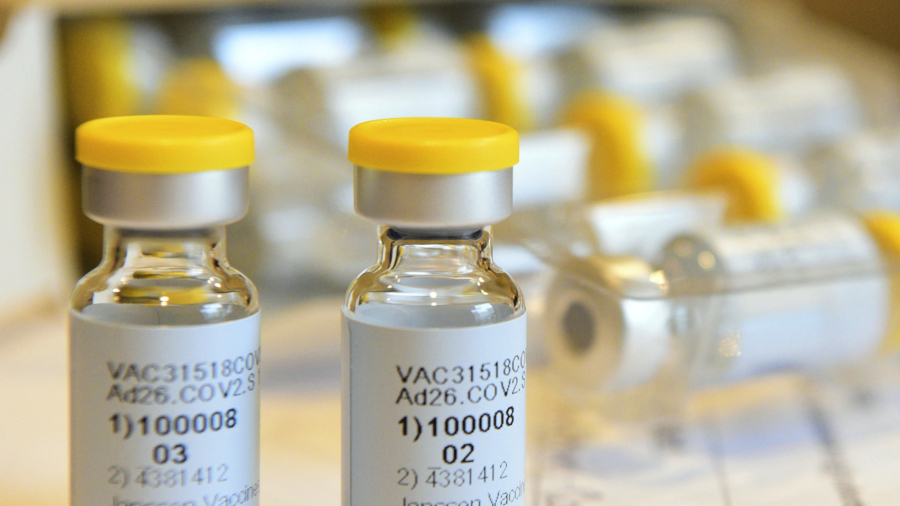Johnson & Johnson has agreed to work with a German scientist studying rare blood clots linked to its vaccine for the CCP virus, which causes the disease COVID-19.
Andreas Greinacher, a transfusion medicine expert at Greifswald University, was already studying blood clots in patients who received the AstraZeneca CCP (Chinese Communist Party) virus vaccine. Johnson & Johnson agreed to cooperate with Greinacher after blood clots emerged in patients who received the Johnson & Johnson vaccine.
The European Medicines Agency (EMA) said earlier in the day that it would add a label to the Johnson and Johnson vaccine warning of unusual blood clots. AstraZeneca’s vaccines carry a similar warning.
Both Greinacher and the EMA believe that the benefits of the vaccine outweigh the risk of blood clots.
Greinacher’s team had analyzed specimens from the people who suffered clots since mid-March. He released a paper on Tuesday offering a theory for why the clotting side effect emerged. Greinacher now wants to study samples of the J&J vaccine.
“We agreed today with (J&J) that we will work together,” Greinacher said. “My biggest need, which I’ve expressed to the company, is I would like to get access to the vaccine, because the J&J vaccine is not available in Germany.”
Johnson & Johnson did not immediately respond to a request for comment.
The EMA said on Tuesday it suspects the vaccine may trigger an unwanted immune response, but safety committee chairwoman Sabine Straus said it has not identified specific risk factors.
“It would be very helpful if we know beforehand, whether it might be some kind of genetic disorder, or something else in the blood vessels,” Straus told reporters.
Greinacher does not believe such a prognostic test is likely, based on experience with a similar disorder called heparin-induced thrombocytopenia that has defied efforts to identify why some people may be predisposed to the serious condition.
“We even completely gene-sequenced 3,000 of these patients, and we couldn’t find a genetic predisposition,” he said.
In Greinacher’s new, not yet peer-reviewed paper, he suggests the technology behind AstraZeneca’s shot, some of its ingredients, and the powerful immune reaction it induces, may contribute to a cascade of events that overpowers numerous mechanisms that normally keep the human immune system under control.
Both the AstraZeneca and J&J vaccines use a common cold virus, albeit different ones, to ferry instructions to cells to produce an immune response. J&J’s shot uses a human adenovirus, while AstraZeneca uses a chimpanzee adenovirus.
Reuters contributed to this report.
From The Epoch Times


